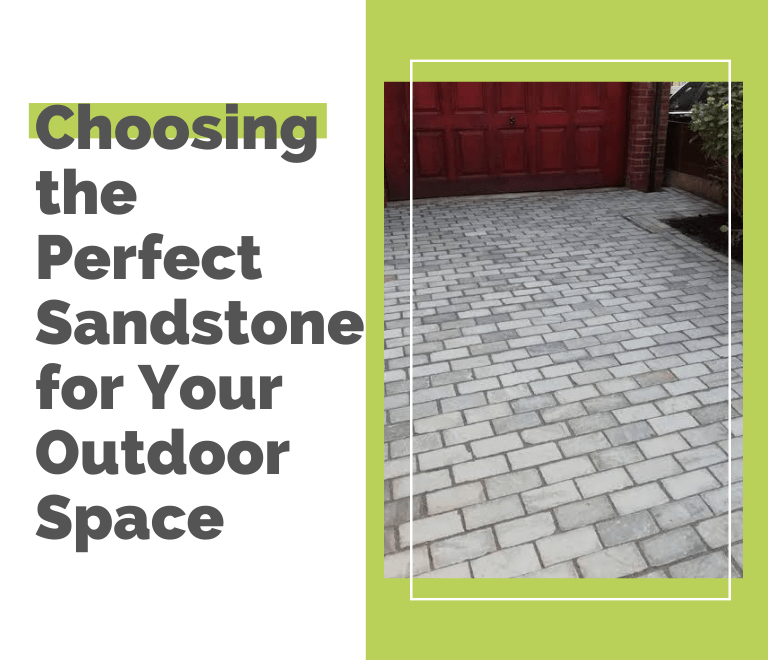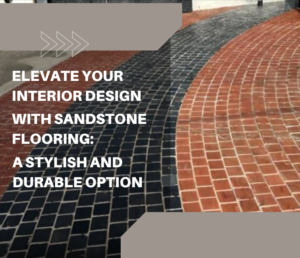Introduction
Selecting the ideal sandstone for your outdoor space is a crucial decision that can transform your home’s aesthetics and functionality. In this comprehensive guide, we will explore the various factors to consider when choosing sandstone for your outdoor projects. From color and texture to durability and maintenance, this article will provide you with the insights needed to make an informed decision.
Understanding Sandstone
What is Sandstone?
Sandstone is a sedimentary rock composed of sand-sized mineral grains, primarily quartz. It is renowned for its natural beauty and versatility in construction and landscaping.
Varieties of Sandstone
- Sedimentary Origins: Sandstone can be classified based on its sedimentary origins, which include marine, desert, and riverbed varieties.
- Color Spectrum: Sandstone comes in a wide range of colors, including beige, red, yellow, and gray.
Factors to Consider
1. Color Selection
When choosing sandstone, the color is a primary consideration. It should complement your outdoor space’s existing elements. You can select from earthy tones like beige or more vibrant hues like red or yellow.
2. Texture and Finish
Sandstone can have various textures and finishes, from smooth to rough. Consider the desired aesthetic and practicality for your outdoor space. Smooth finishes are great for pool areas, while rough textures provide excellent slip resistance.
3. Durability
Evaluate the sandstone’s durability to ensure it can withstand your local climate and intended use. Look for sandstone with a high resistance to weathering and fading.
4. Maintenance
Different types of sandstone require varying levels of maintenance. Choose one that aligns with your willingness and capacity to maintain it. Some sandstone may need sealing or periodic cleaning.
5. Cost
Budget is a significant factor. Determine how much you can invest in your outdoor project and select sandstone that fits your financial plan.
Popular Sandstone Types
1. Rainbow Sandstone
Rainbow sandstone is renowned for its vivid and multicolored patterns. It is an excellent choice for creating eye-catching pathways and patios.
2. Teakwood Sandstone
Teakwood sandstone’s warm and golden hues make it perfect for adding a touch of elegance to your outdoor space. It is also known for its strength and durability.
3. Kandla Grey Sandstone
Kandla Grey sandstone is a classic choice for its neutral gray shade. It’s highly adaptable and suits a wide range of architectural styles.
Installation Tips
1. Professional Installation
Consider hiring a professional installer with experience in handling sandstone. Proper installation ensures the longevity and integrity of your outdoor project.
2. Grouting
Use a high-quality grout that matches the color of your sandstone to maintain a seamless and cohesive appearance.
3. Sealing
Seal your sandstone to protect it from stains and weather damage. The frequency of sealing depends on the type of sandstone and your location.
Conclusion
Choosing the perfect sandstone for your outdoor space can significantly impact the beauty and functionality of your property. By considering factors such as color, texture, durability, maintenance, and budget, you can make an informed decision that will enhance your outdoor living experience.
FAQs
1. Can I use sandstone for a pool area?
Sandstone with a smooth finish is an excellent choice for pool areas, as it provides slip resistance and a pleasing appearance.
2. How often should I seal my sandstone?
The frequency of sealing depends on the type of sandstone and your local climate. Generally, it’s recommended to seal it every 1-2 years.
3. Are there eco-friendly sandstone options?
Yes, some sandstone varieties are more environmentally friendly than others. Look for ethically sourced and sustainable options.
4. Can I use sandstone for both traditional and modern architectural styles?
Yes, sandstone’s versatility makes it suitable for a wide range of architectural styles, from classic to contemporary.
5. What’s the average lifespan of sandstone in outdoor settings?
With proper maintenance, sandstone can last for several decades, making it a durable choice for outdoor spaces.



